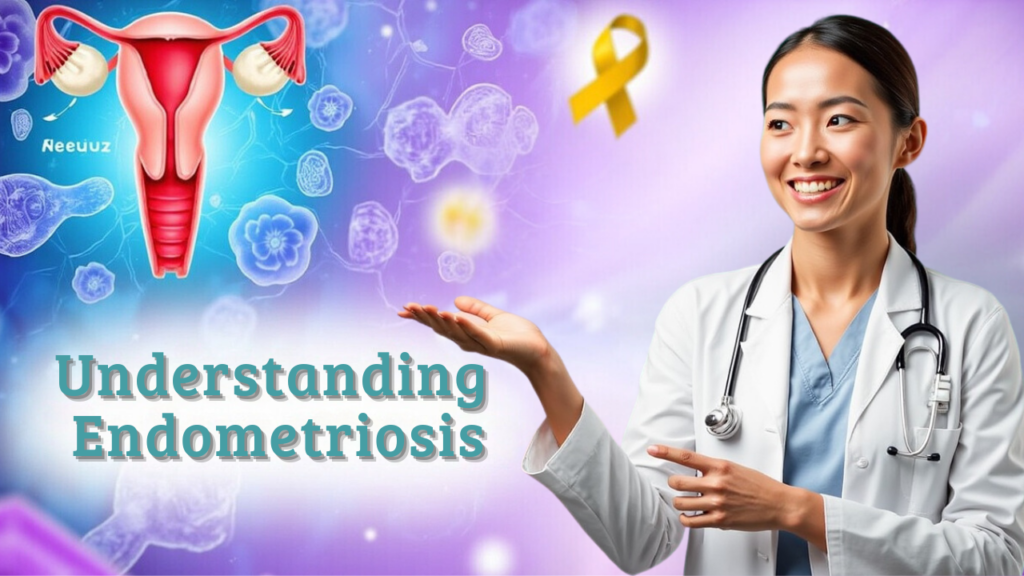Learn about endometriosis—its symptoms, causes, and treatments. Gain insights into managing this condition and improving your health.

What is Endometriosis?
Endometriosis is a chronic and often painful condition affecting millions of women worldwide. It occurs when tissue similar to the lining of the uterus, known as endometrium, grows outside the uterus. This misplaced tissue can cause inflammation, scarring, and even infertility. Despite its prevalence, many cases remain undiagnosed for years, making awareness and education critical for early detection and treatment.
Why is Endometriosis a Global Health Concern?
Globally, approximately 10% of women of reproductive age are affected by endometriosis, according to the World Health Organization (WHO). The condition not only impacts physical health but also significantly affects mental well-being and quality of life. Women with endometriosis often struggle with severe pelvic pain, fatigue, and emotional distress, which can hinder their daily activities and relationships.
Symptoms and Diagnosis
The symptoms of endometriosis vary widely but often include:
- Chronic pelvic pain
- Painful menstrual periods (dysmenorrhea)
- Pain during intercourse
- Heavy menstrual bleeding
- Infertility
Because these symptoms overlap with other conditions, diagnosis can be challenging. Healthcare professionals typically use a combination of patient history, imaging tests, and sometimes laparoscopy to confirm endometriosis.
Current Research and Treatments
Ongoing research has shed light on potential causes of endometriosis, including genetic predisposition, immune system dysfunction, and hormonal imbalances. While there’s no definitive cure, treatments focus on managing symptoms and improving quality of life. These may include:
- Medications: Hormonal therapies and pain relievers.
- Surgery: Removal of endometrial tissue in severe cases.
- Lifestyle Changes: Diet, exercise, and stress management can help alleviate symptoms.
The Importance of Early Intervention
Recognizing the symptoms early and seeking medical advice can significantly improve outcomes. Women experiencing persistent pelvic pain or difficulty conceiving should consult a healthcare provider. Early diagnosis not only prevents complications but also opens up more effective treatment options.
Practical Tips for Managing Endometriosis
For those living with endometriosis, self-care plays a vital role. Here are some tips to help manage the condition:
- Maintain a balanced diet rich in anti-inflammatory foods, such as leafy greens and omega-3 fatty acids.
- Incorporate regular, gentle exercise like yoga to reduce stress and improve circulation.
- Keep track of symptoms in a journal to identify triggers and inform discussions with your doctor.
- Explore pain management techniques, such as heat therapy or mindfulness practices.

Final Thoughts
Endometriosis is a complex condition that requires greater awareness and understanding. By staying informed and proactive, women can take control of their health and find effective ways to manage symptoms. Whether through medical treatments, lifestyle adjustments, or innovative supplements like Mitolyn, there are resources and strategies available to help improve quality of life.
Understanding Herpes Simplex Virus: A Widespread Infection

